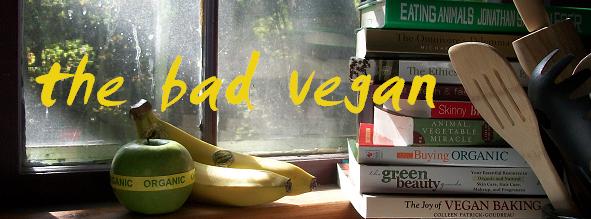 Barbara Kingsolver’s 2007 Animal, Vegetable, Miracle – A Year of Food Life promotes a non-vegan approach to sustainability, environmentalism, the humane treatment of animals, and health. This love story between Kingsolver’s family and local food follows a year-long “experiment” in which the Kingsolver-Hopps consume only what can be found within 100 miles of their Appalachian home. They do make a few exceptions for items like coffee and olive oil, but the majority of what they eat comes from their own back yard. Intimately knowing the source of our food is empowering and important for supporting independent growers with sound practices, ensuring the quality of the food we eat, and avoiding the massive amount of fossil fuels used to transport non-local foods. Kingsolver’s effortless descriptions of planting heirloom seeds, laboriously tending to her garden, harvesting beautiful, organic produce, and canning it to sustain her family through the winter made me want to put on my gardening gloves and dig in.
Barbara Kingsolver’s 2007 Animal, Vegetable, Miracle – A Year of Food Life promotes a non-vegan approach to sustainability, environmentalism, the humane treatment of animals, and health. This love story between Kingsolver’s family and local food follows a year-long “experiment” in which the Kingsolver-Hopps consume only what can be found within 100 miles of their Appalachian home. They do make a few exceptions for items like coffee and olive oil, but the majority of what they eat comes from their own back yard. Intimately knowing the source of our food is empowering and important for supporting independent growers with sound practices, ensuring the quality of the food we eat, and avoiding the massive amount of fossil fuels used to transport non-local foods. Kingsolver’s effortless descriptions of planting heirloom seeds, laboriously tending to her garden, harvesting beautiful, organic produce, and canning it to sustain her family through the winter made me want to put on my gardening gloves and dig in. As I’ve mentioned before, our back yard is less than ideal for a garden. When we first moved into this house we spent hours picking up trash and broken glass from the property. Now, over a year later, bottle caps and bits of glass still surface every time it rains. Yet, I can’t shake the desire to grow my own food. Clearly, many of us do not have the luxury of Kingsolver to dedicate most of our waking hours to gardening and writing about our results. However, there are plenty of other ways to get local food, even if it’s not as local as your back yard.
Visiting the Eat Well Guide at http://www.eatwellguide.org is an easy way to search for businesses in your area that carry or produce local food. The site even allows you to narrow your search to restaurants, co-ops, stores, farms, etc. so that you can find just what you’re looking for.
There are also plenty of great resources about urban gardening and gardening in small spaces, if you don’t live on garden-friendly land. Ultimately, we plan to move to a different home where we have plenty of space for a garden. In the mean time, I hope to try a few plants in the windowsill.
Kingsolver also raises and slaughters her own Heritage turkeys, which is clearly a positive alternative to supporting the producers of genetically modified, tortured, deprived, growth hormone and antibiotic stuffed Butterball birds. If you eat animals, seeking out local farms that raise heritage turkeys in the way Kingsolver does and choosing to support them rather than the national corporations who run thousands of factory farms, is a great way vote for sustainability with your wallet. Companies are only as strong as consumers allow them to be. I hope that curling up with Animal, Vegetable, Miracle will inspire you to challenge your own consumption patterns and perhaps, you’ll find Kingsolver’s narrative to be as dreamy as I did.


No comments:
Post a Comment